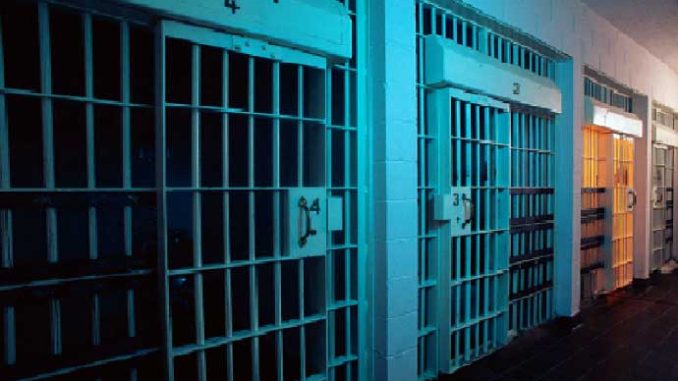
At a time when high-profile federal inmates like Paul Manafort and former Alabama lawmaker Oliver Robinson are being allowed to finish their multi-year prison sentences at home due to COVID-19, a lawsuit filed last month in Arizona seeks a court order allowing a public health expert to inspect the safety precautions at a private prison in Florence.
On May 8, lawyers for five people detained at CoreCivic’s Central Arizona Correctional Complex in Florence sued Warden Kris Kline, as well as the director of the Federal Bureau of Prisons, the U.S. Marshal for Arizona, and the Director of the U.S. Marshals Service. The legal action seeks relief and class-action status to ensure the Florence complex complies with COVID-19 public health guidelines.
Last week U.S. District Judge Diane Humetewa denied a motion by the plaintiffs for a temporary restraining order and preliminary injunction that would have allowed the health expert immediate access to the Florence facility, but the judge did not dismiss the case. Additional filings are expected in the coming weeks.
Most of the 3,000 people housed by CoreCivic in Florence are waiting for trial and have not been convicted of a crime. On the day the lawsuit was filed, the U.S. Marshals Service and CoreCivic reported 13 detainees and 7 staff members tested positive for COVID-19.
At the time, U.S. Marshal David Gonzales of the Arizona District said several hundred detainees were in a quarantine protocol. But since then, federal and prison officials have not released additional data.
Court records show the five plaintiffs have medical conditions such as leukemia, kidney cancer, asthma, and high blood pressure which place them at high-risk if exposed to COVID-19, according to the lawsuit filed in conjunction with the American Civil Liberties Union (ACLU) Foundation of Arizona and the national ACLU organization.
“We have heard from people inside of these facilities about their fears of contracting COVID-19,” said Jared Keenan, criminal justice staff attorney at the ACLU of Arizona. “It is clear that the prison is not taking the necessary steps to keep incarcerated people and by extension, the general public, safe. We hope the court realizes it must act to protect those who cannot protect themselves due to being incarcerated.”
Among the plaintiffs are a 50-year-old woman diagnosed with kidney cancer who had not been tested for COVID-19 despite reporting a fever and cough. Another is a 39-year-old woman who was being treated for leukemia prior to being taken into custody. She’s been unable to continue with treatment and her weakened medical condition places her at greater risk, the lawsuit contends.
“The U.S. Bureau of Prisons and U.S. Marshals Service have a constitutional duty to protect the people in their custody from the grave risk of contracting COVID-19,” said Jean-Jacques Cabou, Partner at Perkins Coie, a prestigious Phoenix law firm acting as lead counsel. “The public health evidence is clear that social distancing and heightened sanitation practices are necessary to fulfill that duty, and yet our government, along with CoreCivic, has failed to do these basic things.”
In a May 14 response to the lawsuit, Florence warden Kris Kline revealed details of cleaning practices, medical assessments, and quarantine protocols being utilized at that time. There is also a court filing by an Assistant Federal Public Defender who stated her office received written notice of a quarantine at the Florence complex several days before Warden Kline stated it went into effect.
According to the Federal Bureau of Prisons’ website, operations have been modified at its facilities, such as suspension of visitation and unnecessary transfers. The agency’s COVID-19 guidance has been shared with private detention contractors “so that similar protocols can be implemented.”
Wiliam Staes of the U.S. Attorney’s Office is representing the federal officials and agencies in the legal action, while Tennessee-based CoreCivic has retained private corporate counsel.
